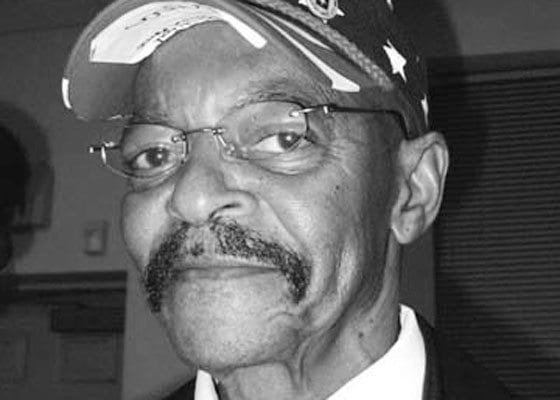
Throughout his life, Juan Tennyson was famous among his friends for the artistic zeal he brought to passions like bending metal into sculpture and shooting amateur films. But it was his enthusiasm and skill for the art of politics that many members of the local political establishment mourned last Saturday, when about 300 people gathered at St. Mary of the Angels Church in Roxbury for a memorial service in Tennyson’s honor.
A native of El Progreso, Honduras, Tennyson died of cancer Jan. 17 at the age of 65.
Above all, “he always felt the underprivileged should have a voice — that’s what drove him,” said his brother, Thoney Tennyson Johnson. “He was very engaging and very high-energy, and he did the things that other people were scared to do.”
Mukiya Baker-Gomez, a veteran Boston political operative and campaign manager, highlighted the issues that were important to Tennyson throughout his political career.
“He was concerned with economic opportunities, job creation and CORI, particularly the impact of CORI on young men of color, and just basic empowerment of people,” said Baker-Gomez, who said she met Tennyson while working on Mel King’s 1983 mayoral run.
“You would wonder when [Tennyson] would ever tire out,” Baker-Gomez said. “You would get intoxicated through his energy. You couldn’t stand [or] sit and watch him work. You had to be actively involved.”
That relentless approach sometimes drew opponents’ ire, Baker-Gomez added, saying that “people tried to limit his political involvement in campaigns” by trying to keep him from putting up signs.
“He was constantly trying to educate the public on who was running and why they were running, and keep issues that he thought were important to people of color in front of them,” she said.
Through it all, it was Tennyson’s passion that most impressed many of the people with whom he came into contact.
“He went to every campaign as if it were the last campaign on earth,” said Giovanna Negretti, executive director of ¿Oíste?, a statewide Latino political organization.
After coming to Boston from New York in the mid-1960s, Tennyson learned English while working at a foundry in South Boston and spoke both English and Spanish fluently.
Tennyson would joke, “Want to know why I’m so bilingual? So I can fight for justice in two languages,” said Jim Spencer, a longtime friend and the political director for former Congressman Joseph P. Kennedy Jr.
According to several friends, Tennyson never became a U.S. citizen, but during the 40 years he spent in Boston, he threw himself into the city’s political scene, becoming a go-to organizer in local communities of color.
“Everything in politics is an absolute drill. There’s an art and science to it, and Juan was the master of that art and science,” Spencer said.
“He was a real lesson for those who take voting for granted,” Spencer added. “I bet there’s not a single other person in the city of Boston who got more people who’d never been involved in politics before registering to vote and participating in campaigning, particularly in African American and Latino communities.”
As one of the first Afro-Latinos to serve in the Honduran military, Tennyson was particularly passionate about campaigning for veterans’ rights. That he was not a U.S. military vet was no matter, said Ralph Cooper, longtime head of the Roxbury-based Veterans Benefits Clearinghouse.
“Whenever you have experienced combat or combat training, there’s a relationship you build with other combatants. You’re able to understand the language, the discipline, and the pain of combat or combat training,” Cooper said. “He was a soldier, even in campaigning.”
That discipline and determination allowed Tennyson to have an impact on elections across Massachusetts, especially in campaigns for many minority candidates, including former House of Representatives candidate Tomas Gonzalez, ousted state Sen. Dianne Wilkerson, and City Councilors Charles C. Yancey and Chuck Turner.
“In general, he was a true artist and a creative genius, and brought that into every part of his life, including the placement of signs and the spreading of information,” Turner said.






